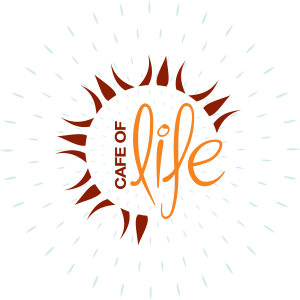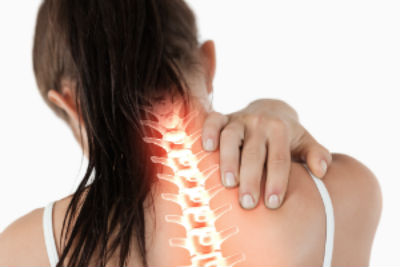 “How much pain can you tolerate?” is a very interesting question. Some people have a high pain threshold and are very “macho” in their approach as they act like they can handle anything. On the other hand, many others have a mild to moderate threshold and search for a cover up to eliminate their unpleasant feelings. Based on the astronomical statistics of pain medication use, our level of tolerance has gone way down.
“How much pain can you tolerate?” is a very interesting question. Some people have a high pain threshold and are very “macho” in their approach as they act like they can handle anything. On the other hand, many others have a mild to moderate threshold and search for a cover up to eliminate their unpleasant feelings. Based on the astronomical statistics of pain medication use, our level of tolerance has gone way down.
In the United States the total cost of health care related to pain is approximately $600 billion and the cost to employers dealing with employees who have reduced work productivity due to pain is in the neighborhood of $100 billion per year. An Auburn University study showed that 67 percent of children suffered muscle soreness, 51 percent back pain, 24 percent numbness and 15 percent shoulder pain. Studies from John Hopkins Children Center and many other places have shown that backpacks cause back and shoulder pain and poor posture in children. Between 1997 and 2005, the medical expenses for individuals with spine problems grew from $4,695.00 to $6,096.00 per person.
According to CBC News, 54 percent of Canadian seniors report that chronic pain is interfering with most of their activities. The National Population Health Survey found that seniors who saw their pain increase over a two-year period were more likely to be unhappy or have a negative impression of their personal health at the end of that period. In younger Canadians between the ages of 12 and 44, 10 percent are already experiencing pain that is affecting their life and limiting their activities.
Too many people look to manage their pain by numbing their feelings with non-prescription or prescription drugs. Certainly in extreme cases this may be helpful as any compassionate person would agree; however, managing pain with medication as part of a lifestyle rather than getting to the cause can lessen your body’s natural pain tolerance and cause horrible side effects including nausea, sleep disruption, lack of mental clarity, lack of energy, depression and potential damage to key organs such as the liver, kidney and heart. Overuse can create unintended addictions to pain medication that can lead to even more challenges and difficulties in your life.
Chiropractic care is a much better option for both acute and chronic pain sufferers. First of all, a chiropractic examination can locate areas in the spine that are out of balance and are putting pressure on nerves which can contribute to nearly every type of pain condition.
Crisis Care, the type of care that is delivered when someone is in pain or suffering from a health problem, is delivered with frequent visits close together to begin realigning the spine, reducing inflammation and pressure from the nervous system, which usually provides relief and stability within a few weeks or months.
The next phase of care, called the Critical Transition, is critical because it provides consistent care with less frequent visits stretched out over a longer period of time regardless of how people feel so the spine, nervous system and body can begin to regenerate. It is this phase of the care that is necessary to support an active, healthy, long life that is either free from chronic pain or certainly makes pain much more manageable.
Unfortunately too many people ignore this Critical Transition because they feel better and they go back to the destructive habits that caused their deterioration in the first place. This behavior, including numbing their pain with drugs, can only lead to more deterioration and pain even though you experience relief from the pills. Continuing your chiropractic care through the Critical Transition breaks this cycle and gives your body the chance to adapt and truly heal for the long haul.
Isn’t it time that you decide to not tolerate a pain and medication based lifestyle and the deteriorating future that it promotes? Take care of your spine and nervous system so that your body can heal itself and enjoy the quality of life you deserve.


 The Ultimate Health Care Technology requires no batteries or electricity of any kind. It adapts to changes in weather, food intake, stress levels, and work habits. It also adapts to changes in your environment and the intensity of your physical training and exercise. You can direct it to perform at the highest level possible with your choices. This Ultimate Health Care Technology is your body’s Innate Intelligence.
The Ultimate Health Care Technology requires no batteries or electricity of any kind. It adapts to changes in weather, food intake, stress levels, and work habits. It also adapts to changes in your environment and the intensity of your physical training and exercise. You can direct it to perform at the highest level possible with your choices. This Ultimate Health Care Technology is your body’s Innate Intelligence. Recurring injuries are annoying to
Recurring injuries are annoying to  Over 100 years ago DD Palmer, DC asked an important question that sparked a new profession – the Chiropractic profession. “I desired to know why one person was ailing and his associate, eating at the same table, working in the same shop, at the same bench was not. Why? What difference was there in these two persons that caused one to have various diseases, while his partner escaped?”
Over 100 years ago DD Palmer, DC asked an important question that sparked a new profession – the Chiropractic profession. “I desired to know why one person was ailing and his associate, eating at the same table, working in the same shop, at the same bench was not. Why? What difference was there in these two persons that caused one to have various diseases, while his partner escaped?” We all know the power of commitment. Think about the last time you committed yourself to something that was significant to you. Was it your family, your health, your job, or learning a new skill? Commitment is energizing because you block out the world, focus your energy, and create meaningful results for yourself and your loved ones.
We all know the power of commitment. Think about the last time you committed yourself to something that was significant to you. Was it your family, your health, your job, or learning a new skill? Commitment is energizing because you block out the world, focus your energy, and create meaningful results for yourself and your loved ones.